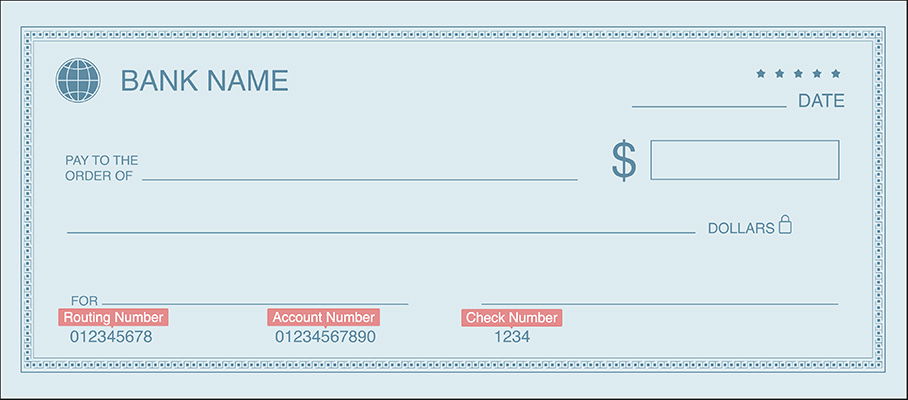Checking accounts provide you with easy, secure access to your money, but not without cost. Banks use various kinds of fees to increase profits, and checking accounts carry some of the highest fees compared to other accounts.

If you aren’t keeping a close eye on your account, checking account fees can quickly put a dent in your balance. And we’re not just talking about your basic monthly service fee. The good news is that there are ways to avoid paying monthly maintenance fees, ATM fees, and several others, too.
Before we dive into the different types of average checking account fees, however, let’s start with some basics.
Why do we pay checking account fees?
Checking account fees are in place primarily due to the costs of maintaining your bank account. They also largely function to enable banks to make a profit on their services.
Many traditional financial institutions will charge checking account fees for various account activities. Your own checking account’s fees will vary depending on your bank and your banking activity.
Checking accounts are not the only account type with fees. Savings accounts, money market accounts, and credit cards all typically come with fees too. But checking accounts are used most frequently, which is why they tend to be the most costly when it comes to fees.
How to Avoid Paying Checking Account Fees
While many of the average checking account fees have become common, most of them are also avoidable. Some are easier to shake than others, however. And unless you’ve got an explicitly fee-free account, you’ll want to find a way to avoid some of these common fees.
Below, we’ll run through seven of the most common fees associated with checking accounts, and what you can do to avoid them.
Monthly Service Fee
Monthly service fees, or monthly maintenance fees, are regular fees which your bank or credit union will charge for maintaining your account. You can think of your monthly maintenance fee as a basic operational cost. They typically range from $5 to $15 per month.
The exact value of this fee will vary depending on the type of account you have. Generally speaking, high-tier accounts tend to come with higher maintenance fees.
You can review your monthly statement cycle to see exactly how much you’re being charged for maintenance fees.
How to Avoid Monthly Service Fees
While maintenance fees are the most basic checking account fee, most banks do offer a way to avoid them. Usually, you need to meet a certain monthly minimum balance requirement. Banks will be happy to waive this fee for customers who keep a high balance.
Another typical method is by making a certain amount and value of direct deposits each month.
If you’re unsure about your own bank’s policy, you can contact them and ask about waiving monthly service fees.
Overdraft Fees
Most banks will charge an overdraft fee when your account balance falls into negative. This can happen if you withdraw too much, or complete a transaction of a greater value than your current account balance.
It’s vital to be aware of your bank’s policy here, if you do incur an overdraft fee. Some online checking accounts won’t charge overdraft fees, once the value is under a certain amount.
However, most traditional banks do charge an overdraft fee for any negative balance.
The average overdraft fee is around $35 per transaction. Overdraft fees are among the most expensive checking account fees because you might also be charged interest on the overdrawn amount. This is why it helps to know your bank’s overdraft policy in advance.
How to Avoid Overdraft Fees
Avoiding overdraft charges is simple, at least in theory: avoid withdrawing or spending more than you have.
In addition to that, you may find a bank that offers a short grace period before charging an overdraft fee. Or better yet, you can look for a checking account that comes with overdraft protection. This is a common feature of online bank accounts.
See also: Best Checking Accounts With No Overdraft Fees
NSF Fees
An NSF fee (non-sufficient funds) is charged when you attempt to withdraw or spend more than you have in your account.
NSF fees are similar to overdrafts, however in this case, the transaction won’t be completed. Nevertheless, you will still be charged a small fee.
How to Avoid NSF Fees
Similarly to avoiding an overdraft, avoiding NSF fees requires you to actively manage your account. You’ll need to ensure that your current balance is sufficient to absorb any upcoming transactions, so it helps to plan ahead.
Keeping a close eye on your account balance is also easier if you can use a mobile banking app. Most banks offer apps that allow customers to conduct most of their major banking on a smartphone.
ATM Fees
The vast majority of banks charge their customers for ATM withdrawals, particularly if you use an out-of-network ATM. There can also be a transaction fee when using an ATM. The exact amount will depend on your bank and account type, as well as the ATM operator. But, using an ATM outside their network is typically around $3.
ATM fees exist to protect a bank’s liquidity and also to ensure an ATM doesn’t run empty on any given day. If you are someone who performs a lot of ATM transactions, you’ll want to do your best to avoid ATM fees however you can.
How to Avoid ATM Fees
Some banks will only charge you for using a machine that is outside your bank’s ATM network. You may also be able to claim reimbursements for fees incurred using a non network ATM, up to a certain value.
Do your best to avoid using a non network ATM, and see if your financial institution offers any refunds on ATM fees.
See also: What’s the Best Strategy for Avoiding ATM Fees?
Bank Statement Fees
Receiving paper bank statements used to be the norm, but today banks much prefer to use only electronic statements. As a result, printed bank statements often come with a fee for checking account holders.
How to Avoid Account Statement Fees
While paper statements won’t cost you much, it is still an easily avoidable fee. If you have access to the internet, you can use online banking or a smartphone app to view your bank statements anytime.
Simply speak to your bank or credit union about opting out of paper statements to avoid this fee.
Check Fees
Most banks offer one free order of checks for a personal checking account. However, subsequent orders are likely to incur a small fee. Cashier’s checks and certified checks may also cost you extra.
How To Avoid Paying for Checks
The only way to avoid these fees is to limit your use of checks, and make sure you only use a personal check when necessary.
Debit Card Replacement Fee
In the event you lose your debit card, your bank is likely to charge a fee for replacement.
Some banks do offer free replacements, although in such cases you may still have to pay for expedited delivery if you choose it.
How to Avoid Debit Card Replacement Fee
Avoiding this fee is easier if you can keep your debit card in a secure place, both at home and when you’re out. Alternatively, you might find a bank account that offers free replacements for lost or stolen cards.
Account Closure Fee
Some banks have special introductory offers for new customers, such as free check orders or improved credit card rates. However, if you close your account too soon, you may be charged a fee for doing so. And it’s typically around $25.
How to Avoid Account Closure Fees
Avoiding an account closure fee requires you to be aware of the fine print anytime you open a new account. If you’re there just to avail of an introductory offer, make sure you know when the period for any account closure fee ends.
See also: How to Close a Bank Account
Avoiding Fees with No-Fee Checking Accounts
Thanks to online banking, avoiding checking account fees has never been easier. Here are some of the best no-fee checking accounts out there:
1. Chime
Chime® is a financial technology company partnered with The Bancorp Bank N.A. and Stride Bank, N.A. They provide one of the most popular fee-free1 checking accounts available online. There are no monthly maintenance fees, no minimum account balance requirements, and it’s totally free to set up and fund a Chime checking account.
Chime is a leading online bank offering a range of great financial products to streamline and improve your banking.
2. Upgrade
Upgrade pairs with Cross River Bank to offer the Rewards Checking Plus account, highlighting its commitment to fee-free banking. This account boasts no monthly maintenance fees or overdraft fees, allowing for straightforward, cost-effective management of your finances.
Customers can enjoy up to 2% cash back on everyday debit card purchases and the convenience of accessing paychecks up to two days early through direct deposit.
You can earn up to 5.21% APY on the Upgrade Premier savings account, and your deposits are protected by FDIC insurance up to $250,000.
3. Current
Current is another popular forward-focused fintech company with a no fee checking account. There are no monthly fees or ATM fees. Current also brings a focus to cheap peer-to-peer payments, aiming to reduce the cost of money transfers.
In addition to a competitive checking account, Current also offers Savings Pods with attractive APY. If you’re looking for a no fee online checking account, as well as somewhere to place your savings, Current might be a good fit.
4. First Tech Federal Credit Union
First Tech Federal Credit Union offers the First Tech Rewards Checking, an exceptional no-fee checking account with no minimum balance requirements and no monthly maintenance fees. Members have access to over 30,000 CO-OP network ATMs nationwide for free withdrawals and extensive physical access with over 5,600 CO-OP shared branch locations.
This account also provides high-yield interest, a chance to earn a $300 bonus with qualifying direct deposits, and additional perks like real-time fraud monitoring and free overdraft transfers.
5. GO2bank
GO2bank is a budget-friendly banking solution tailored to meet all your financial requirements. They offer a debit card that has no monthly fees with qualifying direct deposits. You can also take advantage of early access to your paycheck, as well as $200 in overdraft protection.
The savings account comes with an impressive 4.50% APY on balances up to $5,000, and you can establish your credit using the fee-free GO2bank Secured Visa® Credit Card. In addition, you can access your funds effortlessly through 19,000 no-fee ATMs, and deposit cash at over 90,000 locations across the nation.
Frequently Asked Questions
Do all checking accounts have monthly fees?
Not every checking account requires you to pay a monthly fee. In fact, numerous banks provide checking accounts that don’t have any monthly fees, minimum balance requirements, or hidden fees.
These are commonly referred to as “free checking” or “no-fee checking.” To sweeten the deal, some banks might even offer additional incentives like rewards or cash back just for opening and maintaining a free checking account with them.
See also: Free Online Checking Accounts: No Opening Deposit Required
Which banks do not charge a monthly fee?
Thanks to online banking, consumers can avail of checking accounts that often come with few or no standard fees charged. A monthly fee is one that is most easily avoided by signing up with an online bank.
The banks listed above are just some examples of banks that don’t charge a monthly fee.




